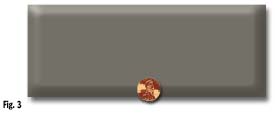ABOUT GAUSS
|
WHAT IS GAUSS? The Permanent Magnet Design and Application Handbook, by Lester Moskowitz provide the following definition: Gauss: The cgs unit of magnetic induction. For clarification let us proceed to the definition of magnetic induction. Induction, magnetic (general): The flux per unit area measured at right angles to the direction of the flux. If after reading the above definitions you feel that you don’t know much more than you did before reading them, you are not alone.Gauss is the most misunderstood term in magnetic therapy, greatly misused by unscrupulous manufacturers who use manufacturer’s gauss rating to indicate the strength of their products, when in truth the strength of a magnet depends on: a) Strength of material (manufacturer’s gauss rating) For example: The earth’s magnetic field is 0.5 Gauss and a refrigerator magnet is 10 Gauss. Considering only these numbers one would think that a refrigerator magnet is more powerful than the earth. This of course is incorrect, the earth, due to its immense size is immeasurably more powerful. Unfortunately there is no standard mathematical formula to calculate the strength of a particular magnet. Magnets used for bio-magnetic purposes are described as open-circuit magnets because they do not have supplemental ferromagnetic parts to provide a complete path for the magnetic energy. Any type of “bare� magnet falls into this category. This would include magnets used in mattresses, support items, jewelry, and encased blocks. Generally, magnets used in magnet therapy products range from 300 to 3000 Gauss. A gauss meter is an instrument which can be used to measure lines of magnetic flux at a specific point on a magnet, but that reading provides no information about the total energy of the magnet being tested or about how far the energy will project from its surface. When describing their products in terms of gauss, most manufacturers are referring to the manufacturer’s gauss rating of the magnetic material. This number will be the same for any size magnet made from the same material and in no way reflects the strength of a particular magnet. Once again, it is not a measure of the total energy of the magnet. The following photographs should illustrate the problems with using the manufacturer’s rating. The same coin is photographed with each magnet to illustrate its size relative to the coin. |
|||||||||
|
|||||||||
|
We at Serenity 2000 have chosen to give our customers the most comprehensive information about each of our products so that they can make an informed decision. With each of our products you will see the following information listed: - Magnetic Material |
|||||||||



